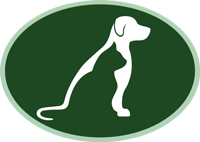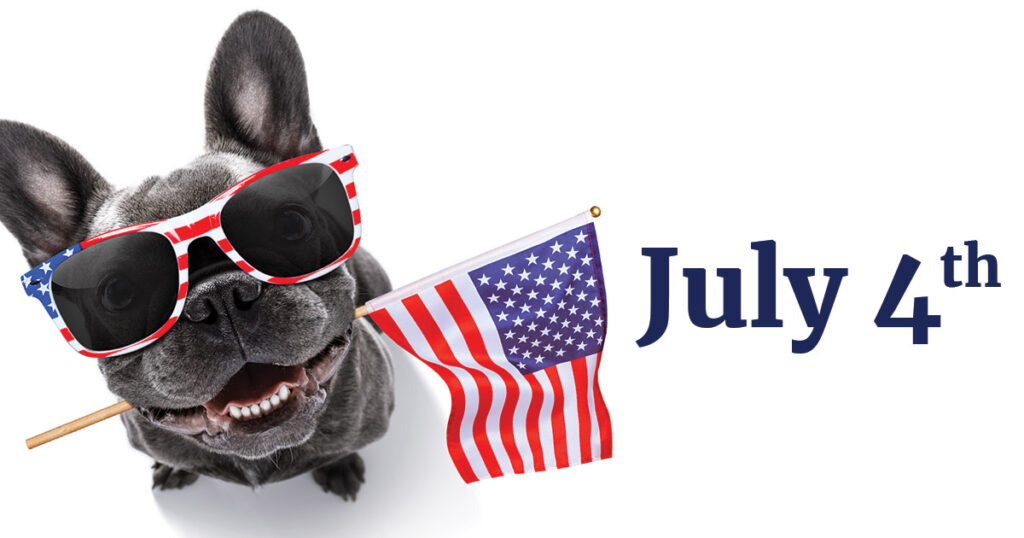FOURTH OF JULY SAFETY FOR PETS
Happy 4th of July! All of us at Portsmouth Veterinary Clinic hope you and your family have a wonderful Fourth of July holiday with friends and family. For pets, however, the 4th of July can be scary or harmful for pets. Please remember these Fourth of July safety tips for dogs and cats:
Prepare in Advance:
- Make sure all your pets – cats and dogs alike – have identification tags with up-to-date information.
- Please be sure your pet is microchipped. If your pets aren’t already microchipped, please call us to have your pet microchipped. This simple procedure can greatly improve your chances of getting your pets back if they become lost.
- If your pets are microchipped, make sure your contact information in the microchip registry is up-to-date.
- Take a current photo of all of your cats and dogs – just in case.
- • If your pet has noise phobias or has historically been very anxious on the 4th of July, consider speaking with us about medications that can help with anxiety in pets.
Safety during July 4th celebrations:
- Leave your pets at home when you go to parties, firework displays, parades and other public gatherings. Loud fireworks, unfamiliar places and crowds can all be very frightening to pets, and there’s great risk of pets becoming spooked and running away.
- Keep your pets inside during firework hours. Asafe kennel or secure room during parties and fireworks may be a good option for your pet.
- Better yet, skip the fireworks display and stay inside with your pets. This way you will be home to comfort your pets, will stay cool, avoid the crowds, and can watch the display on TV.
- Keep sparklers, glow sticks, fireworks, charcoal, and kabob skewers away from curious pets.
- Don’t let pets get near your barbecue grill while it is in use or still hot.
- Avoid the urge to feed your pets table scraps or other foods intended for people. Be especially careful to keep them away from these common foods that are toxic to pets:
- Xylitol-containing products (xylitol is an artificial sweetener often found in sugar-free candy and gum);
- Chocolate (although some types of chocolate are not as toxic as others, it’s safer to keep your pet away from all types of chocolate);
- Onions;
- Grapes and raisins;
- Fatty and fried foods;
- Macadamia nuts
- Avocados
- If you feel your pet is left out of the BBQ fun, grill a small, unseasoned, boneless chicken breast for your best friend or a few veggies like broccoli and carrots, and feed your pet a small amount of these special treats.
After the celebrations:
- Check your yard for fireworks debris before allowing pets outside to play or relax. Even if you didn’t set off fireworks yourself, debris can make its way into your yard, where curious animals may pick it up to play with or eat.
- If you barbequed, check both your yard and home for food scraps or other debris that might have been left behind. Some food and other BBQ items, such as food skewers, can be dangerous to pets.
We hope you have fun this 4th of July! Give us a call if you have any questions or concerns regarding your pet’s health or safety.


